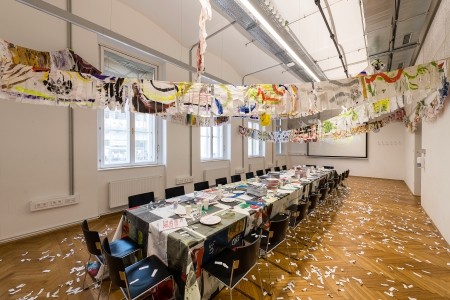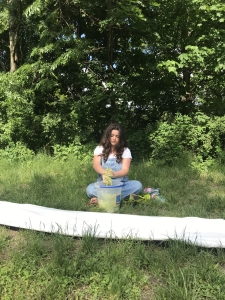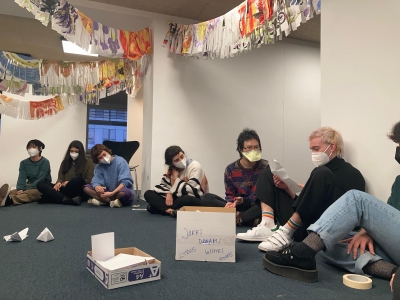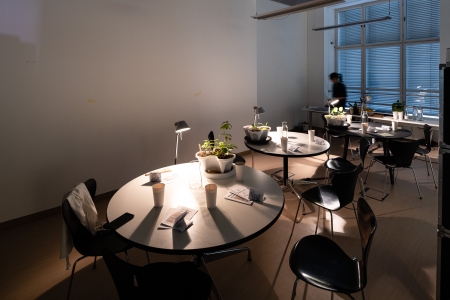Head: Sen. Sc. Mag. phil. M. Phil. Christian
Höller
Cross-Disciplinary Strategies (CDS) takes up key issues in education and the arts, as well as the
challenge of participating in and helping to shape society in the early 21st century. Established in 2017 at the Institute
for Art and Society, the English language programme offers Bachelor's and Master's education.
The
programme aims to prepare graduates for an independent role in mediating or translating between global interest groups with
different specialist backgrounds. Artistic strategies equip them to intervene in a wide range of contexts, not only artistic
settings. Using practical, artistic and theoretical learning models, connections between knowledge, experience and politics
are worked out and developed, in order to meet the complex social challenges of the present day. Epistemology, methodology
and the history of science comprise the foundation to which the specific issues of art, natural sciences, humanities, social
sciences, economic history, and current social and political developments are related. In this process, artistic strategies
and approaches to art are our common disciplinary language. We aim to achieve an independent cross-disciplinary practice in
tackling urgent global issues such as migration, digitalisation, work, growth, the environment and nutrition.
In
its introductory year, the CDS Bachelor covers the principles of programming, statistics, academic work in the form of research
and text production, as well as the principles of human rights, the structure of international organisations, artistic practices
and current discourses in social sciences and humanities.
In subsequent years of the programme, the curriculum is
structured into the study areas science and technology, economics and politics, and artistic strategies on annual topics that
deal with global challenges. Students apply the content theoretically and practically in cross-disciplinary annual projects.
The
CDS master’s programme is designed as a complementary course for graduates of all disciplines, giving the opportunity to go
into topics in more depth. It is project-oriented, strongly practice-based and offers the individual student the opportunity
to shape their course of study. In particular, the programme promotes work on transdisciplinary projects on sustainable social
change and a cross-disciplinary approach to digital technologies and the resulting transformation processes. Students learn
to locate their topic issues in a wider social context and in addition, to communicate them using different methods and artistic
strategies, and to apply them in cross-disciplinary participative projects. For these projects, the programme promotes and
supports dialogue and collaboration with actors in the fields of civil society, art, academia, politics, and the economy.
In
the winter semester of 2021, CDS has established a studio in the former Postsparkasse building. The CDS Studio is a protected
space for experimentation and critical cross-generational theoretical and practical exchange. Students are encouraged and
supported by faculty and visiting coaches from a variety of disciplines in developing independent, cross-disciplinary practice,
whether individually or in teams, through the use of various media and forms of expression. In addition, CDS Studio works
in close overlap with other departments and workshops of Angewandte.
CDS has built a growing network
of
Erasmus partner universities.
Visiting students from other international universities are welcome. Their fresh and critical view gives us a new perspective
on our work.









